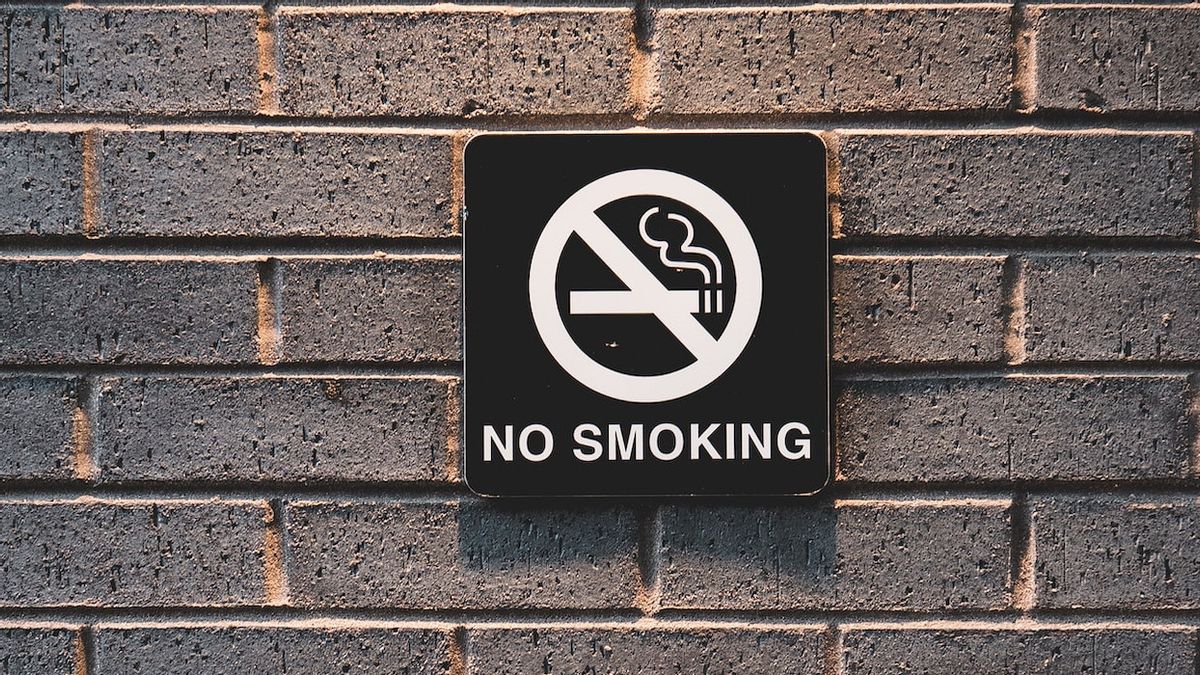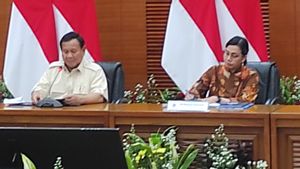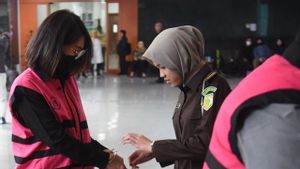JAKARTA - The Speaker of the House of Representatives, Puan Maharani, is concerned that more and more children will become cigarette addicts. He asked the Government to tighten supervision and provide massive education so that children can be free from the dangers of smoking.
Puan highlighted the Basic Health Research (Riskesdas) organized by the Ministry of Health (Kemenkes) where the results found that the number of smokers aged 10-18 years continued to increase. If in 2013 it was at 7.2 percent, the number of child smokers aged 10-18 years in 2018 would be 9, 1 percent in 2018 or around 3.2 million children.
Even the National Development Planning Agency (Bappenas) estimates that the prevalence of child smokers will be 16 percent by 2030 or equivalent to six million children without systematic and massive prevention efforts. Puan asked the Government to pay serious attention.
"The increase in the number of child smokers cannot be allowed to drag on. There must be a breakthrough from the Government to reduce this figure, this is also part of the Government's long-term program," said Puan, Friday, July 7.
Smoking behavior among children has become a global problem. The Indonesian Center for Social-University Security Studies (PKJS-UI) found various kinds of global surveys to prove that Indonesia is ranked second in the prevalence of the world's most child smokers.
The issue of child smokers in Indonesia is a serious problem that requires in-depth intervention for handling it. Moreover, the problem of child smokers in Indonesia has received serious attention from international circles, as evidenced by foreign media calling Indonesia a baby smoker country because there is an incident where toddlers go viral as smokers.
"The government needs to consider the crucial factors that cause children to consume cigarettes. With the right steps, it is hoped that the number of child smokers can decrease drastically," explained Puan.
Puan invites all parties to raise awareness to minimize factors that can trigger an increase in child smokers.
"Strengthening advertisement rules, promotions and sponsors about cigarettes because information facilities from the media are very influential," he said.
"The reality is that in the field there are still retail cigarette sellers who make it easier for children to consume cigarettes. This needs further supervision from the Government," said Puan.
"This must also be awareness from kiosk or minimarket managers who should strictly prohibit children 18 years and under from buying cigarettes. We can learn from foreign countries who ask customers to show their identity cards when buying cigarettes if they look underage," he continued.
VOIR éGALEMENT:
Exposure to cigarette smoke to children also deserves the attention of all parties. By becoming asecond-hand smoke (exposed to smoke directly from people who smoke) and hand-hand smoke (indirect exposure can be done through residual cigarette smoke that sticks to clothes), children will have various health risks.
To note, children who become passive smokers are more susceptible to old coughs, suffering from pneumonia (pneumonia), and asthma. In fact, as many as 165,000 children in the world die every year due to lung disease related to cigarette smoke exposure.
"Children who have been exposed to cigarette smoke at an early age are getting bigger and at risk of experiencing health problems. I hope adults who smoke have sensitivity to this. Children's health is our joint investment for the progress of the nation and state," explained Puan.
The English, Chinese, Japanese, Arabic, and French versions are automatically generated by the AI. So there may still be inaccuracies in translating, please always see Indonesian as our main language. (system supported by DigitalSiber.id)












